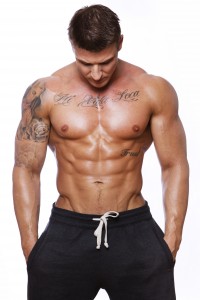Busting some myths about Breast Cancer
Nov 04, 2016
21093 Views
October was observed as the breast cancer awareness month. As we were flooded with queries, here is some relevant information on this condition. Every individual believes hear say. But is that the right approach when to comes to such disorders? Please see some common myths “busted” royally!
The Essential Bit
The term “breast cancer” refers to a malignant tumor that has developed from cells in the breast. Usually breast cancer either begins in the cells of the lobules, which are the milk-producing glands, or the ducts, the passages that drain milk from the lobules to the nipple.
The different types of breast cancer, including ductal carcinoma in situ (DCIS), invasive ductal carcinoma (IDC), invasive lobular carcinoma (ILC), inflammatory breast cancer, male breast cancer, recurrent breast cancer, metastatic breast cancer, and more.
Breast cancer is always caused by a genetic abnormality. However, only 5-10% of cancers are due to an abnormality inherited from your parents. 85-90% are a result of the aging process and the “wear and tear” of life in general.
Initially, breast cancer may not cause any symptoms. A lump may be too small for you to feel or to cause any unusual changes you can notice on your own. Often, an abnormal area turns up on a screening mammogram (X-ray of the breast), which leads to further testing.
The tests used for screening, diagnosis, and monitoring, including mammograms, ultrasound, MRI, CAT scans, PET scans, and more.
Most people who develop breast cancer have no family history of the disease. However, if heredity is involved, most inherited cases of breast cancer are associated with two abnormal genes: BRCA1 (BReast CAncer gene 1) or BRCA2 (BReast CAncer gene 2).
Genetic testing for BRCA1 and BRCA2 is NOT part of the standard procedure. According to the National Cancer Institute, women with an abnormal BRCA1 or BRCA2 gene have about a 60% risk of being diagnosed with breast cancer during their lifetimes (compared to 12-13% for women overall). These women are also at an elevated risk of ovarian cancer.
Cancer Genetics is extremely complex – a concept that is still being researched thoroughly. Certain families are known to have a very diverse set of cancer affected individuals – emphasising the fact that the members of the family may not be affected by the same kind of cancer. Varied and complicated though in nature, there is a relation among the different types of this disease. One must consider the whole family history when mapping their risk.
People say – but is it TRUE?
Myth: Most breast cancers run in families.

Fact: Only 5% – 10% of breast cancers are noted to be hereditary. The other 90% are largely due lifestyle and environmental factors.
Myth: You can’t do anything to prevent breast cancer!

Fact: Ninety percent of breast cancers are due to lifestyle and environmental factors. To keep your risk as low as it can be, maintain a healthy weight and exercise regularly.
Myth: Regular mammograms prevent breast cancer.

Fact: Mammograms don’t prevent breast cancer, but they can save lives by detecting it as early as possible, when it’s highly responsive to treatments.
Myth: Deodorants/Antiperspirants cause breast cancer.
Fact: There is no scientific evidence to support the claim that antiperspirants cause breast cancer, either because of toxin buildup or aluminum exposure.
Myth: Men do not get breast cancer; they don’t have breasts.

Fact: Quite the contrary, each year it is estimated that approximately 2,190 men will be diagnosed with breast cancer and 410 will die. While this percentage is still small, men should also check themselves periodically by doing a breast self-exam while in the shower and reporting any changes to their physicians.
Breast cancer in men is usually detected as a hard lump underneath the nipple and areola. Men carry a higher mortality than women do, primarily because awareness among men is less and they are less likely to assume a lump is breast cancer, which can cause a delay in seeking treatment.
Myth: Mobile phones cause breast cancer!

Fact: Some people worry that radio waves produced and received by mobile phones may pose a health risk, especially if they keep their phone in their breast pocket. These radio waves are a type of low-energy, non-ionising radiation. This type of radiation also includes visible light, ultraviolet (UV) and infrared radiation.
While it’s not possible to isolate any one factor as a cause of breast cancer, there’s currently no evidence that radio waves from mobile phones cause breast cancer or increase the risk of developing it.
Myth: Only older (eg. Post menopausal women) get breast cancer
Fact: Current stats show an alarming reduction in the average age of onset of breast cancer, even in Indian women. Having a first degree relative who was diagnosed < 40 years of age – indicates a strong genetic risk.
What Can ‘YOU DO’?
Exercise Regularly!
Research shows a link between exercising regularly at a moderate or intense level for 4 to 7 hours per week and a lower risk of breast cancer. Exercise consumes and controls blood sugar and limits blood levels of insulin growth factor, a hormone that can affect how breast cells grow and behave. People who exercise regularly tend to be healthier and are more likely to maintain a healthy weight.
Maintain a healthy body weight!

Overweight and obese women — defined as having a BMI (body mass index) over 25 — have a higher risk of being diagnosed with breast cancer compared to women who maintain a healthy weight, especially after menopause. Being overweight also can increase the risk of the breast cancer coming back (recurrence) in women who have had the disease. This higher risk is because fat cells make estrogen; extra fat cells mean more estrogen in the body, and estrogen can make hormone-receptor-positive breast cancers develop and grow.
Avoid Binge drinking of alcohol
Compared to women who don’t drink at all, women who have three alcoholic drinks per week have a 15% higher risk of breast cancer. Experts estimate that the risk of breast cancer goes up another 10% for each additional drink a woman regularly has each day. Research consistently shows that drinking alcohol can increase levels of estrogen and other hormones associated with hormone-receptor-positive breast cancer. Alcohol also may increase breast cancer risk by damaging DNA in cells.
Say NO to Smoking

Smoking causes a number of diseases and is linked to a higher risk of breast cancer in younger, premenopausal women. Research also has shown that there may be link between very heavy second-hand smoke exposure and breast cancer risk in postmenopausal women.
Avoid using Hormone Replacement Therapy
Because the female hormone estrogen stimulates breast cell growth, exposure to estrogen over long periods of time, without any breaks, can increase the risk of breast cancer. Taking combination (estrogen and progesterone) hormone replacement therapy (HRT) for several years or more, or taking estrogen alone for more than 10 years, are associated with increased breast cancer risk. (Combination HRT also increases the likelihood that the cancer may be found at a more advanced stage.)
Conduct Breast self-exam!
It should be part of your monthly health care routine, and you should visit your doctor if you experience breast changes. If you’re over 40 or at a high risk for the disease, you should also have an annual mammogram and physical exam by a doctor. The earlier breast cancer is found and diagnosed, the better your chances of beating it.
Does someone in your family have breast cancer? Are you worried about your risk? Reach out to us, and our team of expert genetic counselors will be happy to address your concerns.
Drop an email at info@mapmygenome.in, or call us on our toll-free number :1800-102-4595.


